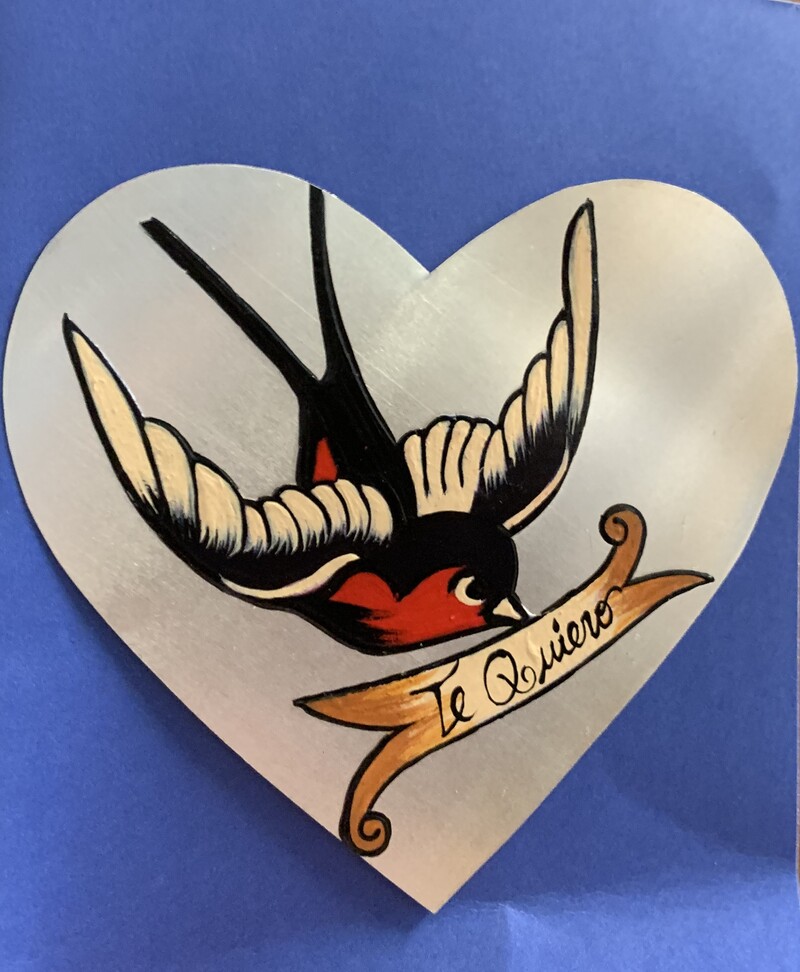The Electronic Intifada 21 March 2019

Razan al-Najjar, center, treats a wounded person during Great March of Return protests on 1 April 2018, two months before she was killed by an Israeli army sniper.
APA images“I wonder if you are interested in why I am buying this angel today,” I asked the elderly woman checking my purchases at the arts and craft store in New Mexico.
“I’m buying it for a friend who I’ve been traveling with over the past few weeks who is from Gaza.”
She looked interested, so I continued.
“My friend Ahmed is someone who inspired people to nonviolently march to the boundary fence in Gaza,” I explained. “He is here on a speaking tour in the US. Do you watch Democracy Now!?”
“Yes,” she replied. “I always seek out alternative media. Amy Goodman is great. Sad what is happening between the Palestinians and Israelis.”
“Well, my friend was interviewed by Amy Goodman in New York last week. He shares the story about why thousands of Palestinians in Gaza are marching to the fence each week. One of his stories is about a young medic named Razan al-Najjar. Have you heard her story?”
“No, I haven’t,” the shopkeeper replied. “I actually don’t think I have heard any stories from people in Gaza.”
I explained that Razan was a 21-year old volunteer medic, who helped tend to the wounded who are often shot by Israeli snipers as they protest weekly at the boundary fence.
She came from a poor family and was devoted to serving others, according to Ahmed, who met her family.
Razan was killed by an Israeli sniper last year as she helped the wounded at the protest.
She was wearing her white medic coat when she was shot. Razan is one of about 260 Palestinians in Gaza who have been killed by the Israeli army over the last year, nearly 200 of them in the context of unarmed protests.
More than 29,000 have been injured during the demonstrations, some 7,000 by live fire.
An angel to take back to Gaza

A gift for Ahmed to let him know that ”Americans like me want him to fly free like the birds.”
Ahmed talks about Razan when he speaks to audiences in the US. He often refers to her as an angel. “I want to give this angel to Ahmed to take back to Gaza to give to Razan’s mother. Just so she knows that people in the US have heard her daughter’s story,” I said.
The shopkeeper replied: “How come we don’t hear these stories. I mean, I didn’t know that Palestinians have been protesting at the fence for a year. I guess conditions there are so difficult. Can you tell me more?”
I gave her an abbreviated version of the messages Ahmed has shared on his speaking tour: the daily lives in Gaza spent coping without electricity, without access to proper medical care, without clean water, without jobs, without the ability to travel. Palestinians want a life of dignity, Ahmed reminds audiences.
The majority of Palestinians in Gaza are refugees and live just miles from their original homes on the other side of Israel’s boundary fence. They want to return. Their year-long protest called the Great March of Return is a cry from a tiny strip of land that has become a prison for two million people due to 12 years of Israeli blockade.
Miracle
“It is really a miracle that Ahmed was able to come to the US,” I said. “It took us six months to plan his trip and until he arrived, I really wasn’t sure he would make it. It is so difficult for people to travel to and from Gaza. If one is lucky to leave, it is sometimes difficult to return home. Ahmed has four small children and a wife that he misses daily. But he is committed to reaching Americans with the story of Palestinians from Gaza.”
“My friend Ahmed often talks about birds,” I said as she wrapped up a folk art bird I bought as a goodbye gift for Ahmed. “He is a lover of nature and often looks at how the birds fly freely in Gaza. He asks audiences in the US, why can’t Palestinians in Gaza be free to move like the birds? I can’t look at birds now without thinking about how they are so meaningful to him.”
The shopkeeper got up from behind her desk. “Well, we have lots of birds in this store. Let me give you a few things to give to Ahmed as a gift from me. I want him to know that Americans like me want him to fly free like the birds.”
We then went through the store, collecting trinkets that Ahmed and his children might like: a box of worry dolls, a heart-shaped bell, a bird with the words Te Quiero – I love you – inscribed, and two small clay birds made at a nearby pueblo.
As she wrapped up the small gifts, I told her she could learn more on our website GazaUnlocked.org and to watch Democracy Now! for a chance to see Ahmed’s interview. I thanked her for her generosity and for taking time to hear about Gaza.
“I am so happy you opened the conversation about the angel,” she said. “I will remember this encounter for years to come.”
“I will too,” I replied.
Jennifer Bing is director of the Palestine-Israel program for the American Friends Service Committee in Chicago and co-leader of the No Way to Treat a Child campaign.





